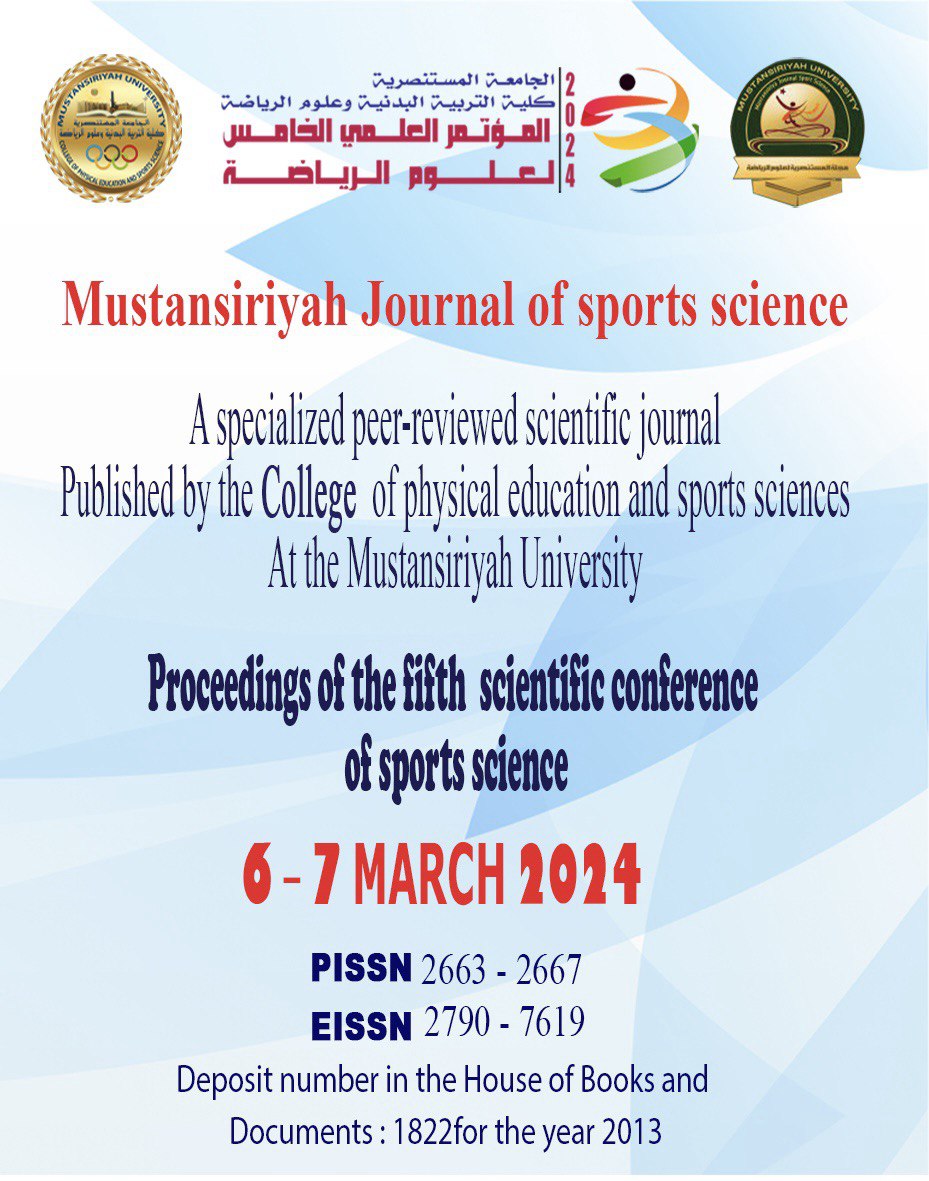The relationship of emotional maturity to the performance of the scoring skills of standing and jumping in basketball among students
Main Article Content
Abstract
The research study aimed to identify the relationship between emotional maturity and its relationship to the scoring skills of standing still and jumping with a basketball among students. The researcher used the descriptive approach to suit the research, and here the problem of the research focused on their psychological lack of balance, their emotional maturity, their fear of failure when learning the skill, and their lack of psychological control. And the skills when they are exposed to stressful situations in their skill performance, as the research sample (28 students) was chosen from the students of the first stage of the College of Physical Education and Sports Sciences / Al-Mustansiriya University in basketball, and the researcher assumed the existence of a statistically significant correlation between emotional maturity and the skills of scoring from jumping. And consistency in basketball among students. The researcher showed the conclusion from the research that the students in the first stage enjoyed a good degree and high stability of emotional maturity during skill performance, and that emotional maturity was reflected positively and effectively on the performance of the scoring skills of stability and jumping with basketball among the sample members. The researcher recommended Paying attention to the psychological aspects of students, and awareness of the emotional maturity of students to improve and raise the level of their performance of various skills and sporting events to reach their highest skill performance and high achievement. .
Downloads
Article Details

This work is licensed under a Creative Commons Attribution-NonCommercial 4.0 International License.

